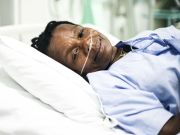
In rural America, drinking has become particularly deadly for many, a new government report shows. Deaths related to alcohol use in those regions rose 43% between 2006 and 2018, health officials reported. Over that time, the rate of deaths went from 11 per 100,000 people to 15 per 100,000. Also, the rate of deaths among… read on >





























